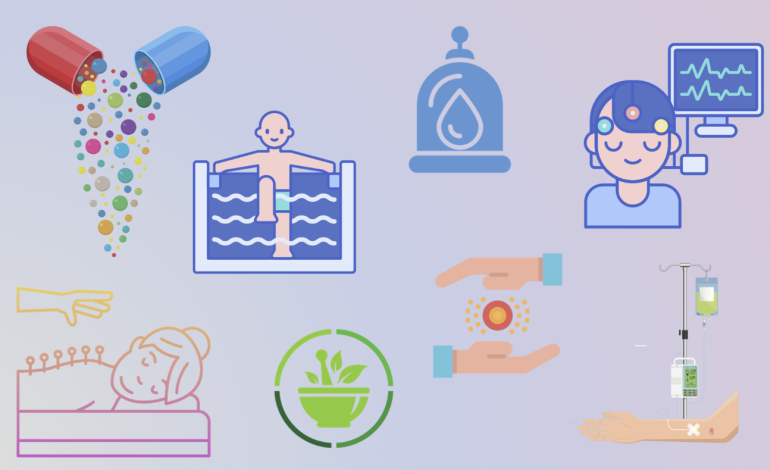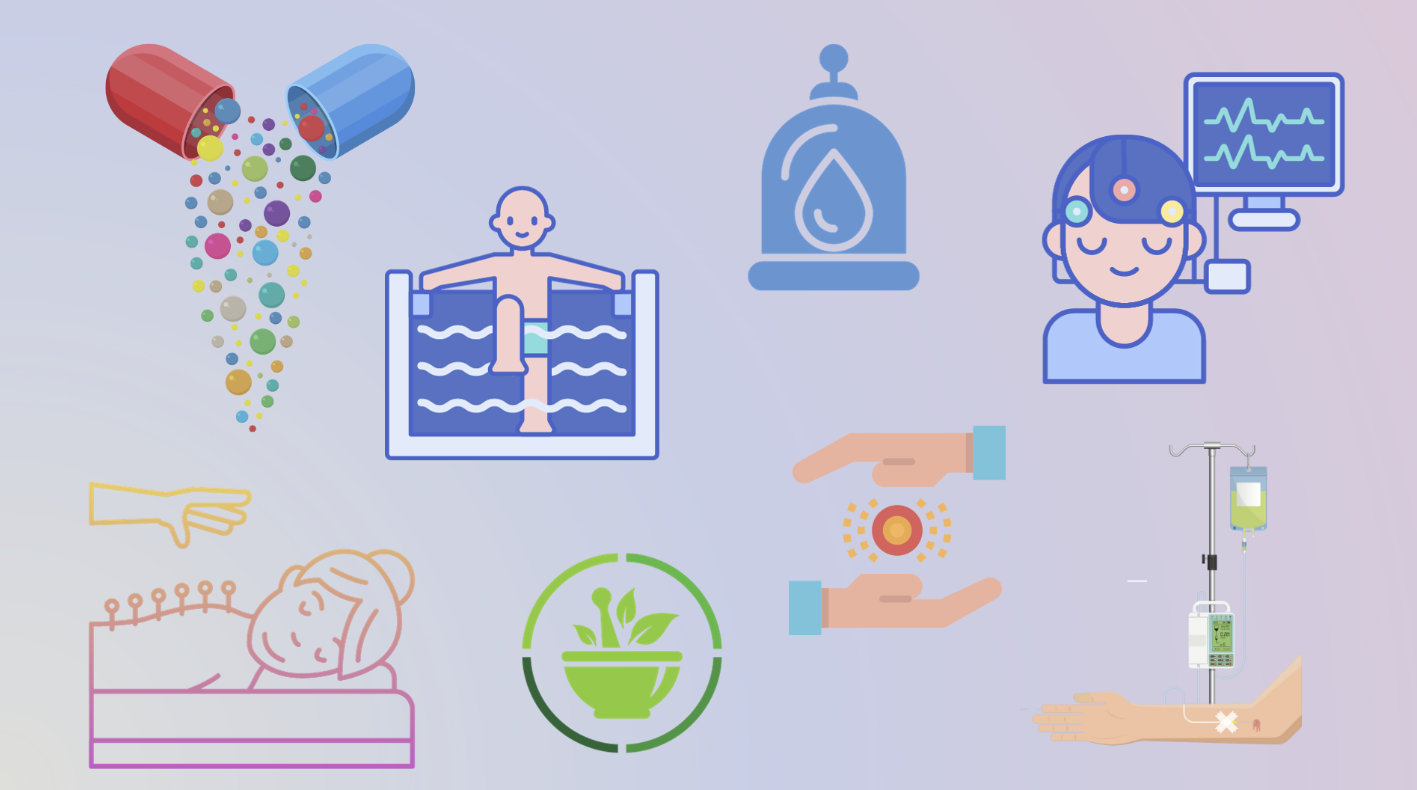
Natural Approaches to Managing Depression in Autoimmune Disease

Depression and Autoimmune Disease: Natural Ways to Lift Your Mood
When it comes to treating depression, traditional medicine often focuses on medications that target brain chemical imbalances. While these can be helpful, they don’t address the root causes of depression, especially in people with autoimmune diseases. As functional medicine practitioners, we take a deeper look at the factors contributing to these imbalances, including the autoimmune disease itself, and work to address them in a more holistic way.
In this article, we’ll explore the connection between depression and autoimmune disease, why you might feel down, and some natural ways to boost your mood and feel more in control.
Depression and Autoimmune Disease Connections
Depression is commonly found alongside autoimmune diseases like lupus, rheumatoid arthritis, multiple sclerosis, Hashimoto’s disease, and Graves’ disease.
For instance, around 25% of people with lupus experience depression, often as one of the first signs of the condition. In rheumatoid arthritis (RA), up to 42% of patients struggle with depression, which worsens their health outcomes. Multiple sclerosis patients are also highly susceptible to depression, with rates of major depressive disorder being 3 to 10 times higher than the general population. Similarly, people with Hashimoto’s thyroiditis or Graves’ disease may experience mood shifts due to hormonal imbalances.
Why Do I Feel So Low?
If you have an autoimmune disease and find yourself feeling depressed, there are several factors at play. Let’s break down the potential causes of your mood and explore natural ways to combat them.
Stress and Its Impact
Living with an autoimmune disease is inherently stressful, both physically and mentally. Chronic stress can lead to low mood and even depression, as it keeps the body in a constant state of “fight or flight.” When the body remains in this state for too long, it can enter a “freeze” response, numbing emotions to protect itself from continuous stress.
Even without facing literal dangers, the constant pain, fatigue, and discomfort of autoimmune diseases can trigger this protective response. Chronic stress doesn’t just affect how we feel emotionally; it can also impact our overall health by contributing to nutrient deficiencies, hormone imbalances, and other stressors that further affect mood.
Brain Chemical Imbalances
You may have heard that depression is linked to chemical imbalances in the brain, particularly low levels of serotonin and dopamine. While medications often address these imbalances by increasing the production of these chemicals, functional medicine goes a step further by identifying and treating the underlying causes of these imbalances.
For example, gut dysfunction is a common culprit. A large portion of serotonin and dopamine is actually produced in the gut. Many people with autoimmune disease also struggle with gut issues, which can disrupt the balance of bacteria in the microbiome, impacting both mood and immune function.
Digestive Issues and Mood
Digestive problems can also contribute to depression by impairing the absorption of nutrients needed to produce brain chemicals like serotonin and dopamine. Without enough stomach acid or digestive enzymes, the body struggles to break down protein into the amino acids required for healthy neurotransmitter production.
Additionally, leaky gut can prevent the body from absorbing essential nutrients, leading to further imbalances that affect mood. Eating the right foods is key, as well. If your diet lacks enough protein or fresh vegetables, you might not be getting the nutrients necessary for a healthy mood.
Feeling Exhausted
Many people with autoimmune disease suffer from chronic pain and fatigue, which can lead to feelings of hopelessness. When health problems seem insurmountable, it’s easy to lose motivation and feel trapped in a cycle of low energy and mood. This sense of helplessness can contribute to depression, as it feels like nothing can improve your situation.
Hormonal Imbalances
Autoimmune diseases often lead to hormonal imbalances, which can also affect mood. Chronic stress causes the body to rely heavily on cortisol, the stress hormone, and disrupts other hormones that help regulate mood, such as progesterone. Low progesterone can lead to lower levels of GABA, a neurotransmitter that helps the brain relax. Without enough GABA, it’s harder to cope with stress, which can contribute to depression.
In women, autoimmune diseases are especially common, and hormonal fluctuations related to conditions like endometriosis can further impact mood. The use of birth control to treat endometriosis can lower progesterone levels, which may worsen depression and stress.
Natural Ways to Boost Your Mood
There are several ways to regain control over your mental health, even with autoimmune disease. Here are four natural mood boosters to consider:
Identify Your Stressors
The first step to improving your mood is identifying what’s causing stress in your life. Some stressors, like work and relationships, may be out of your control, but it’s important to find ways to manage them better. Other stressors, such as those related to diet and lifestyle, are more manageable. A functional medicine practitioner can help pinpoint these stressors and suggest dietary changes, supplements, and lifestyle adjustments to reduce them.
Make Time for Things You Enjoy
Engage in activities that bring you joy. Hobbies, creative outlets, or spending time with loved ones can all help boost dopamine levels and improve mood. It’s important to make these activities a daily habit, whether it’s reading a book, doing some light yoga, or simply enjoying nature.
Get Moving
Exercise is a powerful mood booster, even for those dealing with chronic pain. While it might be hard to get started, even small amounts of movement can help alleviate pain and boost mood. Set attainable goals, like a short walk or gentle stretches, and gradually increase the duration as you start feeling better. Movement helps reduce inflammation and supports your body’s natural ability to cope with stress.
Stay Positive
Maintaining an optimistic outlook can significantly improve your health. Remember that symptoms are your body’s way of signaling what it needs. Rather than focusing on the negatives, try to view your challenges as opportunities to learn about your body and take steps toward improvement. Keep in mind that small, consistent changes can lead to big results over time. Stay hopeful, and trust that you have the strength to improve your health.
By addressing the underlying causes of depression and focusing on natural solutions, you can regain control over your mental health and feel better in both body and mind.





